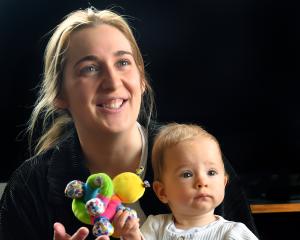
The plea comes in the wake new ACEM research showing "access block" - delays to receiving treatment - are worse for mental health patients than for others arriving at emergency departments.
"An emergency department absolutely needs to think about having a safe and secure space for mental health patients," ACEM New Zealand faculty chairman John Bonning, who is also head of Waikato Hospital’s emergency department, said.
"We need better physical resources to deal with these people, and in Dunedin with the hospital rebuild you are in the perfect position to provide that."
Emergency departments aim to see and then move a patient on - either home or to elsewhere in the hospital - within six hours.
A stay of more than eight hours is termed an access block, although many units have patients stay longer in short-term areas if they need to be monitored.
While mental health patients were just 4% of people at emergency, they experienced access block disproportionately to other patients, the study found.
"Long waits in the ED experienced by patients presenting with acute mental and behavioural conditions are unacceptable and likely to lead to serious deterioration in wellbeing," the report said.
It recommended any access block longer than 12 hours be reported to relevant health authorities; trialling alternative after-hours models of mental health support; and increasing mental health expertise at emergency departments.
The research comes hard on the heels of a study just published in The New Zealand Medical Journal which showed most of the risk assessment forms for patients going to hospital after self-harming - many of whom would have had mental health issues - were incomplete.
That in turn raised questions whether the assessments were reliable indicators of suicide risk.
Dr Bonning said the research - which was carried out in his hospital - confirmed the ACEM report’s recommendation that a timely and effective assessment of mental health patients was needed in emergency departments.
"What our report suggests is that once they need a further extended level of care that they have to wait a long time for that, and that we’re not very good at providing that longitudinal care," he said.
"These are generally very complex patients with very complex needs."
The main users of emergency departments are the ill, children and the elderly.
With the population ageing and dementia rates increasing, emergency departments needed to be better prepared to deal with the likelihood of more mentally ill people coming to hospital in the future, Dr Bonning said.
"It would be nice if some of this work was happening in community care, at the top of the cliff, rather than in emergency departments, which are at the bottom of the cliff," Dr Bonning said.
"We need to rationalise what we do, right across health."
The ACEM research examined Australia and New Zealand emergency departments, with New Zealand departments doing much better.
However, this was no cause for complacency as Australia health trends tended to be harbingers for issues about to affect New Zealand, Dr Bonning said.
"Unless we are alert, it will become more of a problem, not less of a problem."












